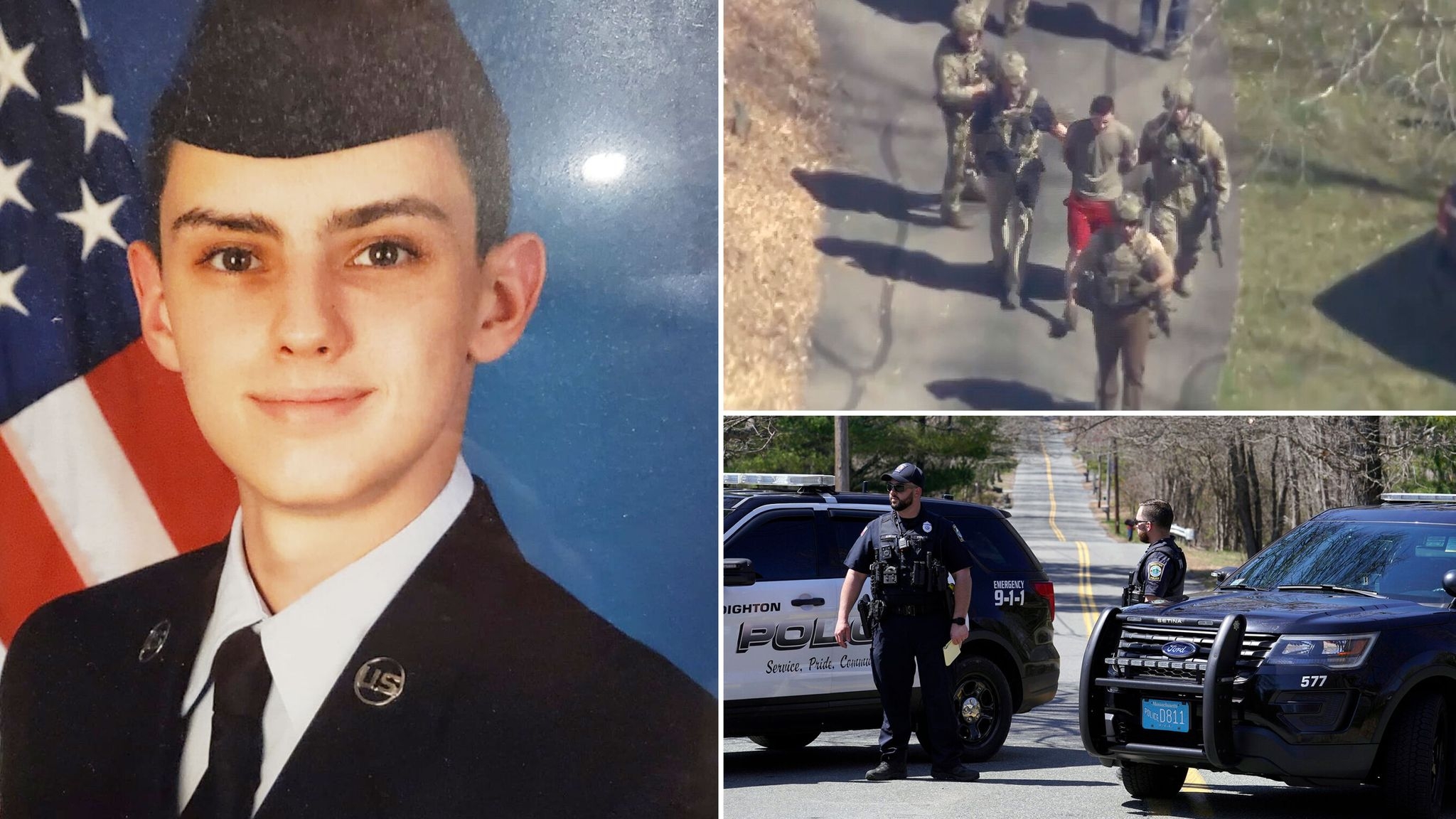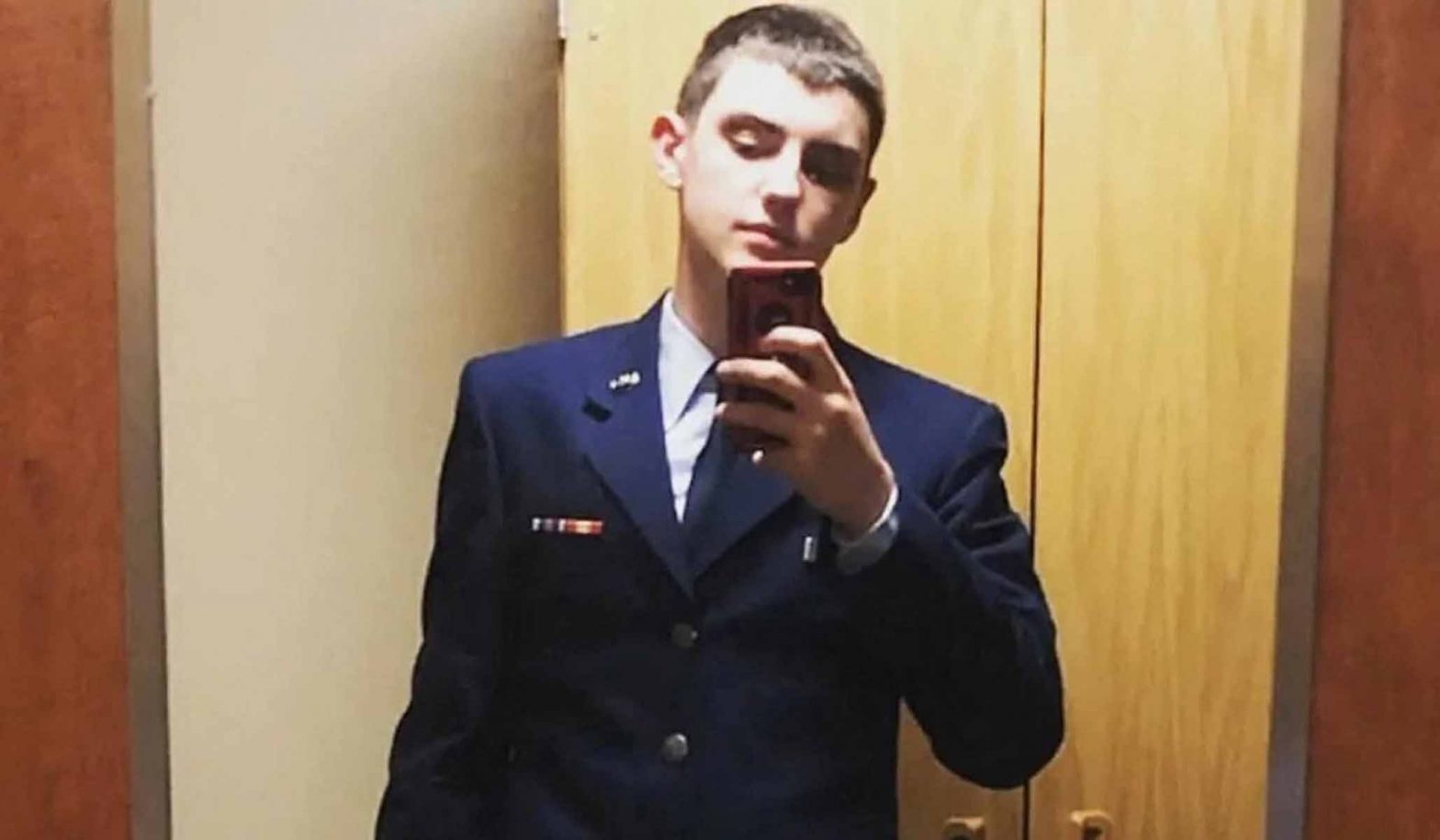Recently disclosed memos reveal a significant oversight in the US Air Force’s management of a serviceman’s unauthorized access to confidential information. Airman 1st Class Jack Teixeira, a 21-year-old junior enlisted airman assigned to the Massachusetts Air National Guard’s 102nd Intelligence Wing, habitually violated rules pertaining to the handling of classified intelligence. The leadership’s lapse in revoking Teixeira’s security clearance has sparked widespread concern among defense personnel, both active and retired.
Jason Kikta, a former Marine Corps Officer and a previous member of the US Cyber Command, described the situation as “a failure of responsibility by the chain of command.” Kikta suggested that Teixeira’s access should have been “severed at the second violation,” based on a discernible pattern of Teixeira’s transgressions illustrated in three Air Force memos released to the public.
The memos were made public this Wednesday as part of the prosecution’s case for keeping Teixeira in custody pending trial. He was arrested on April 14, 2023, under the Espionage Act for unlawful possession and transfer of national defense information and illegal removal of classified documents and defense materials. Teixeira’s defense is arguing that he did not anticipate that the classified information he posted on Discord, an online platform, would be further disseminated.
Virginia Democrat and Senate Intelligence Committee chairman, Senator Mark Warner, labeled the new revelations as “extremely concerning.” He pledged that the Senate Intelligence Committee would continue tracking the case.

The memos chronicle Teixeira’s infractions, beginning in September 2022 when he was caught taking notes on classified intelligence data within the unit’s sensitive compartmented information facility (SCIF). Despite a cease-and-desist order, Teixeira apparently ignored the command and resumed his actions within a month.
A US service member currently involved with classified intelligence handling, who chose to remain anonymous, suggested that Teixeira’s leadership was recording his infractions, possibly preparing for disciplinary measures. However, it’s unclear who ultimately reviewed these memos.
A key point of concern is the unit leadership’s proposal to Teixeira to train for other roles that would have granted him more intelligence access. This proposal was made a month after he had received a cease-and-desist order. This suggestion implies a mistaken perception that Teixeira’s sustained interest in intelligence pointed to his underemployment in his present role rather than a potential security threat.
By January 2023, several months before Teixeira’s arrest for allegedly distributing classified data online, a senior non-commissioned officer saw Teixeira accessing unrelated intelligence content on a top-secret government network. Yet, it appears that no additional action was taken. The looming question is why his leadership didn’t restrict his access to intelligence after these recurrent violations.
This case has uncovered potential negligence within the Air Force command. A 2016 directive from the Office of the Director of National Intelligence obliges security clearance holders to report any suspicious activities of colleagues, including misuse of government computers and violation of security procedures.
Carrie Wibben, an original drafter of the policy during her tenure as an ODNI official, pointed out that everyone in Teixeira’s chain of command likely held a security clearance and would have violated security policy by not reporting his misconduct.
It will be pivotal in ongoing investigations to discern what actions were taken by Teixeira’s superiors and commanders in response to these grave violations.
Kikta underscored the severe consequences of this negligence, stating, “By the third [incident], we’re in negligence territory. At that point, Teixeira’s not the problem. You are.”
The Teixeira case, unfolding amidst rising cyber threats and intelligence leaks, is a stark reminder of the critical need for stringentsecurity procedures and vigilance within defense services. The case also highlights the necessity for swift and decisive responses when these procedures are disregarded. As this investigation progresses, the spotlight is on the Air Force command to see their response to this major violation of trust and security. The unfolding case of Teixeira, in the context of increasing cybersecurity threats and intelligence disclosures, serves as a stark wake-up call about the utmost importance of strict security measures and alertness within the military. The case also underscores the urgent need for responsibility and immediate action when these protocols are breached. As the investigation moves forward, all eyes are fixed on the Air Force command to see how they respond to this significant violation of trust and security.
©world-news.biz
